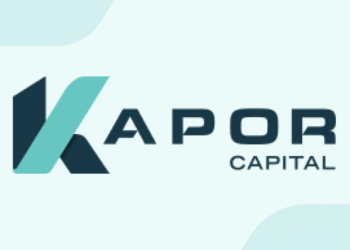What if an investment fund could build profitable businesses while also lifting entire communities out of poverty? This is the core mission of a unique Norwegian financial institution.
Established by the Norwegian parliament in 1997, this state-owned entity operates under the Ministry of Foreign Affairs. Its goal is to drive sustainable economic growth in parts of the world that need it most. The investment fund receives capital directly from the state budget.
Unlike traditional commercial investors, this organization prioritizes development impact alongside financial returns. It focuses on developing countries where businesses often struggle to find funding. The fund’s work is a critical part of Norway’s international development strategy.
It is also a member of EDFI, the Association of European development finance institutions. This connects it to a network of similar organizations across Europe. The ultimate aim is to create jobs and improve lives through strategic investment.
Key Takeaways
- Norfund is a state-owned Norwegian fund established in 1997 to invest in developing countries.
- Its primary mission is to create jobs and improve lives through sustainable business investments.
- The fund operates under the Norwegian Ministry of Foreign Affairs, blending development goals with commercial principles.
- It is a member of EDFI, connecting it to a larger network of European development finance institutions.
- Norfund bridges the gap between public aid and private sector investment in emerging markets.
- Surpluses from its portfolio are reinvested to maximize long-term development impact.
Overview of Norfund and Its Strategic Focus
A state-owned investment vehicle emerged from Norway’s commitment to sustainable economic development in underserved markets. The fund’s creation in 1997 addressed critical funding gaps in developing countries where conventional financial institutions often hesitate to invest.

History, Formation, and Ownership
The Norwegian parliament established this development finance institution as a wholly state-owned entity. Capital allocations come directly from the national budget, making it a unique state initiative.
All investment surpluses are reinvested to maximize long-term impact rather than returning to government coffers. Leadership includes CEO Tellef Thorleifsson and Board Chair Olaug Svarva guiding strategic decisions.
Global Presence and Target Regions
This investment fund developing sustainable businesses maintains a strategic global footprint. Headquarters in Oslo coordinate with regional offices in key locations across multiple continents.
The fund developing countries focuses primarily on Sub-Saharan Africa where development needs are greatest. Selected countries in Central America and South-East Asia also receive targeted investments.
A workforce of 121 people manages operations across these priority regions. Their expertise combines investment knowledge with deep local market understanding.
The Climate Investment Fund prioritizes eight specific countries for maximum environmental impact. This targeted approach demonstrates careful strategic place selection based on development potential.
Norfund’s Investment Approach and Impact on Emerging Markets
Catalytic investments mobilize private sector participation in developing economies. The fund provides equity capital and risk financing to sustainable businesses that traditional lenders often overlook.

Sustainable Business and Renewable Energy Investments
Norfund focuses on four key sectors: renewable energy, financial inclusion, green infrastructure, and scalable enterprises. The organization typically takes equity stakes up to 35% in companies.
This approach ensures commercial viability while addressing critical development needs. The energy sector receives significant attention for its dual impact potential.
Job Creation, Local Tax Contributions, and Economic Development
By the end of 2020, Norfund’s NOK 28.4 billion in committed investment supported 377,000 jobs worldwide. Portfolio companies paid NOK 16.9 billion in local taxes.
Thirty-nine percent of investments target Least Developed Countries. This demonstrates commitment to regions with the greatest financing gaps.
The Role of the Climate Investment Fund
The Climate Investment Fund represents a major climate initiative. It allocates NOK 10 billion from 2022-2027 specifically for renewable energy projects.
These investments avoid 8 million tons of CO2 emissions annually. This equals one-sixth of Norway’s total annual emissions.
ESG, Risk Management, and Accountability at Norfund
Strong governance frameworks are essential for any financial institution operating in complex global markets. The fund’s board of directors holds ultimate responsibility for its comprehensive environmental, social, and governance (ESG) policy.
This ensures senior leadership accountability for sustainability performance across all operations.
ESG Policy, Gender Equality, and Sustainable Practices
The organization demonstrates a strong commitment to gender equality. Its board is gender-balanced, with five out of nine directors being women.
Transparent reporting extends to the proportion of women in each employee category.
As a member of European development finance institutions, the fund has a net-zero emissions target for 2050. It also discloses finance allocated to its clean energy portfolio.
For risk management in the energy sector, the fund uses IFC Performance Standards. It requires biodiversity management plans for its projects.
Public policy commitments prohibit bribery and corruption. A grievance mechanism is accessible to workers and communities to raise concerns.
Cybersecurity Challenges and Mitigation of Data Breaches
In March 2020, the fund experienced an advanced data breach. Fraudsters diverted $10 million intended for a Cambodian microfinance institution.
The crime was discovered in April when a second attack was attempted. Norfund collaborated with national cyber crime agencies and PwC to investigate.
This incident highlighted critical risks in IT security infrastructure. The response aimed to prevent future security threats.
An independent assessment ranked the fund 14th among peers for transparency. Progress includes a new database for bulk data downloads.
While scoring 100% on some disclosure policy areas, challenges remain in project-level risk assessment reporting.
Conclusion
Bridging the financing gap in underserved economies requires innovative approaches that balance risk and impact. The Norwegian investment fund demonstrates how strategic capital deployment can create meaningful progress across developing countries.
This model combines commercial principles with development goals to support sustainable businesses and renewable energy projects. The approach generates significant employment while reducing harmful emissions.
Norfund’s work shows that targeted investment in key sectors can improve lives where conventional financing remains scarce. The institution’s place within European development finance networks amplifies its impact.
Continued refinement of risk management and transparency will strengthen this important state-backed initiative. The fund represents a valuable template for sustainable economic development in emerging markets.
FAQ
What is the main purpose of the Norwegian Investment Fund for Developing Countries?
The fund’s primary goal is to combat poverty by investing in sustainable businesses within developing nations. These investments aim to create jobs, boost local economies, and support the transition to renewable energy sources. The focus is on generating lasting, positive impact.
In which sectors does this development finance institution typically invest?
The fund concentrates its capital on key industries that drive growth and improve lives. This includes clean energy projects like wind and solar power, financial institutions that serve local businesses, and green infrastructure. These sectors are chosen for their high development impact and potential for profitability.
How does the fund manage investment risks in emerging markets?
A rigorous risk management framework is in place to address the unique challenges of these markets. This involves thorough due diligence, active ownership in portfolio companies, and close monitoring of political, financial, and climate-related risks. The aim is to make sound investments while safeguarding capital.
What role does the Climate Investment Fund play in its operations?
The Climate Investment Fund is a dedicated part of the strategy to fight climate change. It directs financing towards projects that reduce greenhouse gas emissions and help communities adapt to environmental challenges. This includes scaling up renewable energy generation and promoting energy efficiency.
How is the fund’s progress and impact measured and reported?
The organization uses a detailed results management system to track performance. Key metrics include the number of jobs created, tax contributions to local governments, clean power capacity added, and reductions in carbon emissions. This data is publicly reported to ensure accountability for its development goals.





